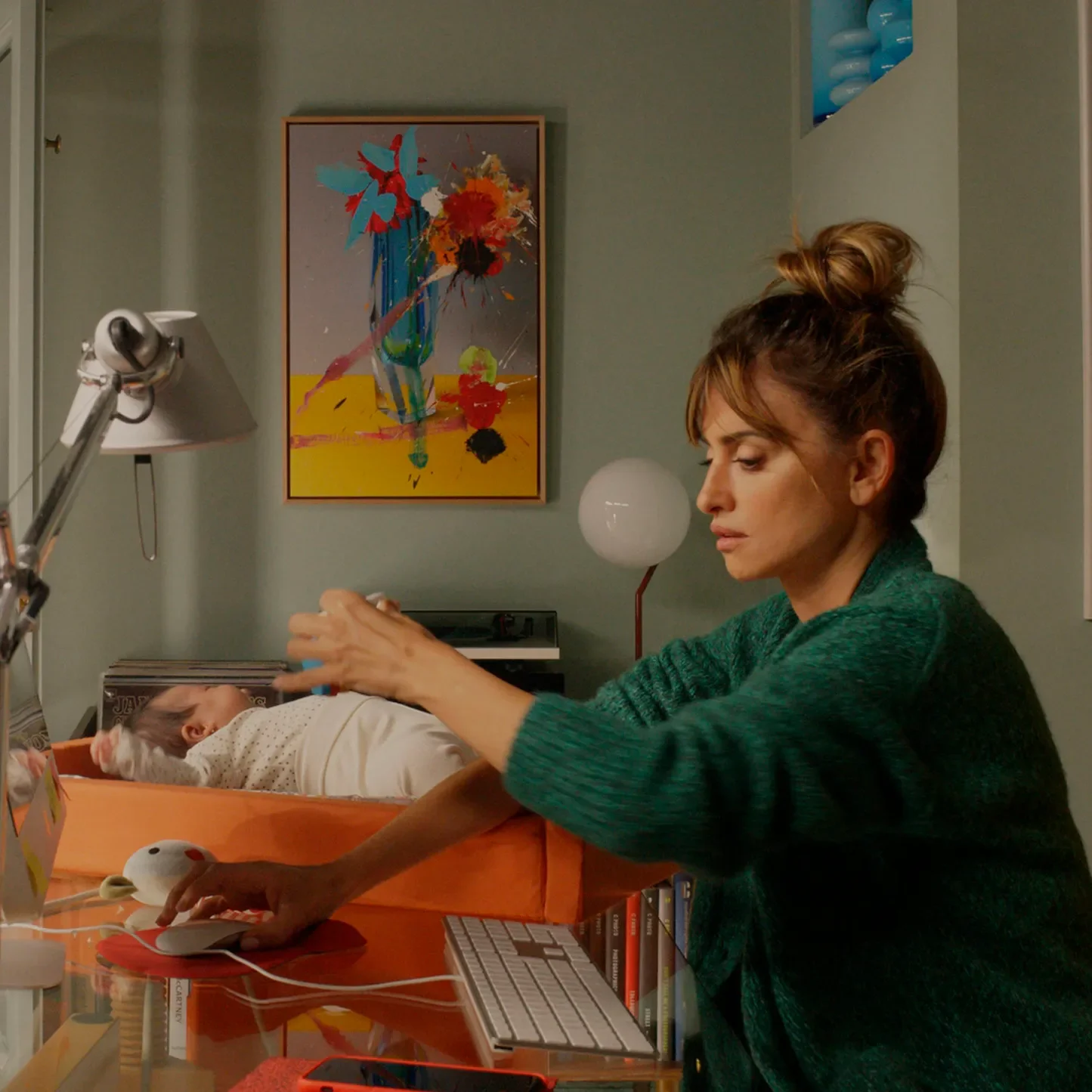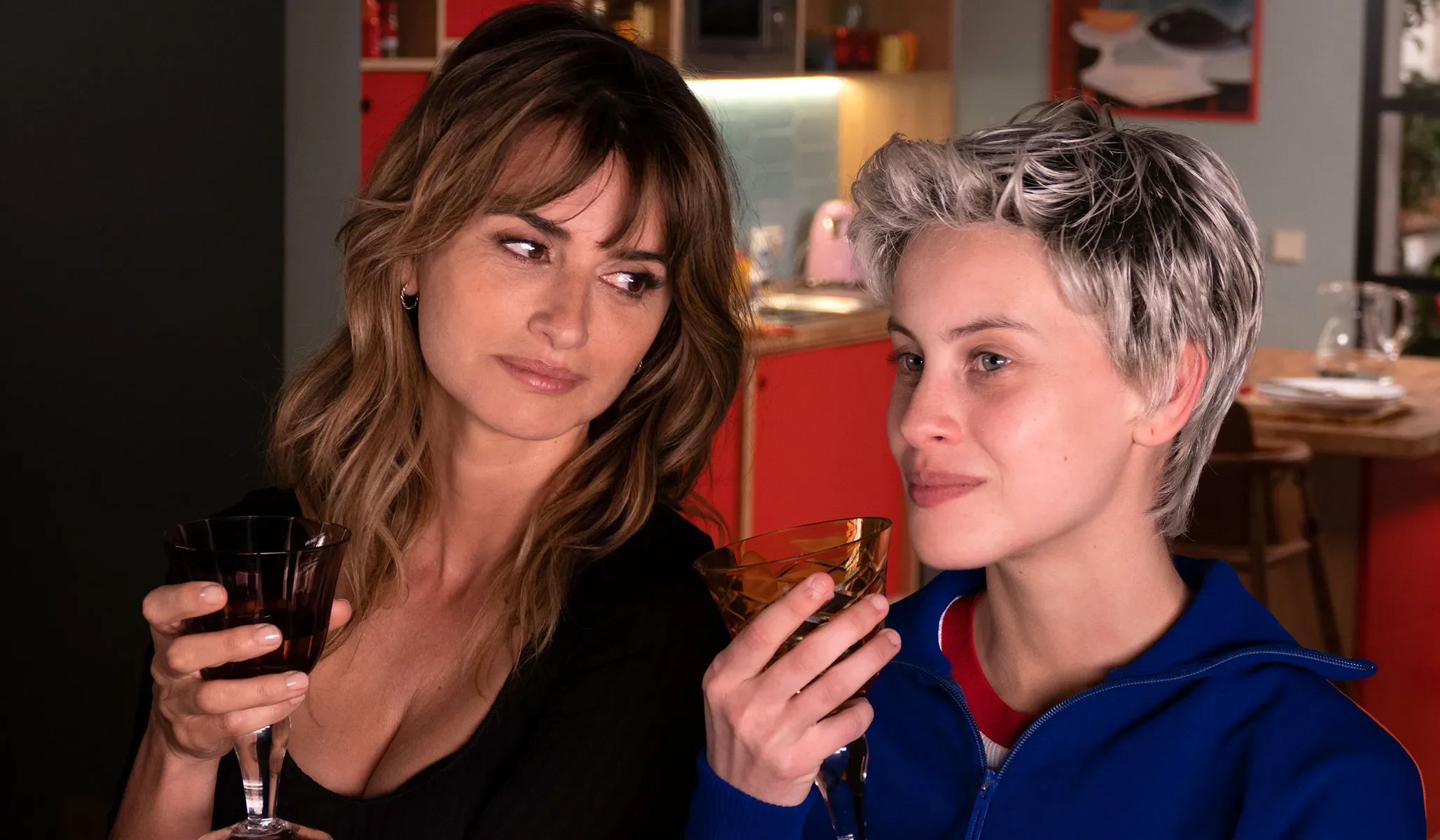Parallel Mothers
2021 ‧ Drama/Melodrama ‧ Pedro Almodovar
Parallel Mothers
I admire Almodovar’s films for his bold visual style, the labyrinthine plots, his exploration of identity and transformation, and his focus on the empowerment of women. I like how he is clearly influenced by classical Hollywood such as Hitchcock and Douglas Sirk as well as Pop Art. I also love his transgressive and subversive elements resulting from his time in the Movida Madrilene movement.
As a long-time fan of Almodovar’s it was as brilliant as I expected, yet this is a more serious film and has great emotional depth. Like all of his films it is defined by its passion and emotion. When all the threads come together at the final scene, I was very moved.
The film is bracketed by the historical excavations of the men murdered during Francos fascist, state-sponsored murders. Janis, a fashion photographer shows Arturo- a forensic archaeologist- the photos her grandfather took of the men who perished. This is the only evidence of these men.
When we meet Janis (Penelope Cruz) and Ana (Milena Smit) one might wonder what they have in common. Janis is nearly 40 and part of the middle-class creative class. She is an independent and successful woman who is happy to have the baby. Ana who is around 18 years old looks terrified at the prospect of having a baby. They are both pregnant by accident: Janis as the result of an affair with Arturo and Ana who pregnant as the result of coercion and blackmail. Almodovar pulls us into the bond of motherhood and the connection between these two women as camera closes in during the moment of birth. When she becomes a mother, Ana becomes focused and strong. She is overwhelmed by her love for her child and is a devoted mother. This is remarkable since she comes from a divorced family and has a mercurial mother whose priority is her career as a theatre actress.
Penelope Cruz is one of my favourite actresses. She is the embodiment of motherhood with her sensual, warm, lioness quality. She embodies the twists and turns in her character arc- from confident new mum, to juggling her career, the emotional turmoil of finding her baby is not hers and then letting her go. It was also her initiative to approach Arturo and fight for justice for her family.
I like the complexity and twists of Almodovar’s films and there are several in this film. I was shocked by the twists in this film, but they are believable and heart-breaking. It is typical of Almodovar to make a thriller out of the drama of single parenthood. This is similar to All About my Mother and Volver. These women fight to keep their families together no matter what and are still optimistic despite the suffering they endure. This film, like his other films had the feel of a Hitchcock thriller with the twists and idea of mistaken identity, not least because of the Bernard Herrmann-esque score. Almodovar stories are full of complex plots, transformation and voyeurism.
This film is the latest in what Almodovar has called his return to the "cinema of women”. For me, he is a women's director and paints wonderful characters. He reminds me of one of my favourite classical Hollywood directors, Joe Mankiewisz. Mankiewisz was a writer-director who created fabulous role for women such as Margo Channing in All About Eve. In fact, one could imagine Bette Davis or Elizabeth Taylor playing the lead characters in Parallel Mothers.
Almodovar explores different ideas of motherhood. Ana's mother Teresa complements Janis on her maternal instinct. She reveals that she discovered acting as a student, but her marriage ended that path. When she wanted to divorce, her husband punished her by denying her access to Ana. Teresa was effectively punished for wanting freedom and deprived of her child. Now she puts her career first, is she selfish? There is a scene where she is rehearsing a monologue in her play which is about a woman who feels invisible. It is very effecting.
I enjoyed a particular scene in which janis shows Ana pictures of her family. The picture of her grandmother depicts a traditional, fierce Spanish lady. The picture of her Mum show a hippy in Ibiza carrying a young Janis round her waist in a sac. The sounds of Janis Joplin's Summertime play in the background. I wonder if Almodovar is inferring that family values changed in 60s and whether this was for better of worse? Following this interaction, janis and Ana sleep together. In a way, Janis and Ana are creating their own version of a family structure.
The kitchen has always been central in Almodovar’s films. Coming from the strict gendered idea of women as place in the kitchen, it is central to films and a way to subvert the norm. The kitchen is associated with women and family and is the heart of the home and tradition. In this film, a lot of serious conversations take place in the kitchen. Janis’ kitchen is a bright, modern kitchen, and Almodovar films the cooking of a Spanish omelette in the same luscious way as the passionate scenes between Janis and her lovers. Food here represents love and nourishment. Whilst in their kitchen, Ana criticises Janis’ obsession with recovering the bodies and that she should look to the future. Janis retorts “ do you know your country” . It highlights the generational divide and gap between the characters.
When Janis returns to her childhood home there is a starkly different kitchen. This is a traditional Spanish kitchen with blue tiles and wooden furniture in comparison. Again, the kitchen is the centre of action as Janis tells Arturo that her grandfather was taken away during dinner. At one point after the twist is revealed and tension is high, I did wonder whether Janis was going to kill Ana in order to keep Cecilia. There is an overhead shot of Janis holding the knife similar to Volver.
The political thread of Parallel mothers is powerful. The final scenes centre around the recovery and identification of those of Janis’ family and the other men of the village. At this point, the two threads of the film combine and the story of the excavations is revealed as the underpinning of this film.
This film is essentially a story about family: the pain and stresses, but ultimate joy. It is a story about women fighting to keep their family together and how this is passed through the generations.
Janis’ story is like those before her: her mother and grandmother were also single mothers. In fact, in this film, men are in the shadows. Whereas the government post- Franco wanted to implement the policy of forgetting, the women were left with the scars and have had to bring up their families in the ashes of this tragedy.
In the final scene, the women of the village come to see the excavation of the bodies of their murdered men. It is intensely moving, as they walk to the site with their photographs, determined not to forget them. The camera pulls up on little Cecilia- who is upset by what she sees. The final shot is of the archaeologists lying in the ditch. Both suggest that future generations cannot forger their history and that it could easily happen again. The final words across the screen are essentially a call to arms.
Almodovar has never directly addressed Franco, instead subverting his ideals and the institutions. With this ending however, he makes a powerful and clear political statement. He has created a truly impactful film.
Parallel Mothers demonstrates how Janis and Ana came together as mothers, to harness the force of motherhood and created a film about generations who have striven to keep families together. It is a film about the drama of motherhood and family.



